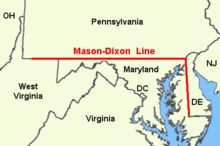Up with Chris Hayes host Chris Hayes discusses what we have learned this week with his panel guests Patrick Gaspard, executive director of the DNC; Chrysta Freeland, contributing writer to Reuters.com; Father Bill Daily, Notre Dame Law School; and Victoria Defrancesco Soto, MSNBC contributor.
NBC News recently took over running the MSNBC web site and has done a revamp that is less user friendly and has less information about the programs. Bear with us as we try to navigate the new format there.
Why the Recent DOMA Decision Matters Even More Than You Think
by Anthony Michael Kreis
On Thursday, Oct. 18, the Second Circuit Court of Appeals ruled (pdf) that the so-called Defense of Marriage Act (DOMA) is unconstitutional. The Second Circuit was not the first appeals court to strike down DOMA, however. The First Circuit Court of Appeals found DOMA unconstitutional (pdf) in May. But the difference between the two legal opinions may mark the beginning of an important legal shift that holds extraordinary promise for the LGBT community.
The first decision evaluated DOMA under what is known as “rational basis review.” This standard is very low. Typically, this level of judicial review is more or less a rubber stamp for legislation. When it comes to gay rights, courts have used this type of analysis to strike down some anti-gay laws. Using rational basis review, courts have said that disliking the LGBT community is not a rational justification for discriminating against sexual minorities. This is how the United States Supreme Court ruled in Lawrence v. Texas that anti-sodomy laws are unconstitutional, for example. [..]
Not all groups can get the type of heightened protections under the Constitution that are already afforded to groups like racial minorities and women. Courts consider a number of factors to determine what groups get heightened scrutiny. Four factors are typically considered: 1) whether the class has been historically subjected to discrimination; 2) whether the class has a characteristic that bears a relation to its ability to perform or contribute to society; 3) whether the class exhibits obvious, immutable or distinguishing characteristics that define them as a discrete group; and 4) whether the class is a minority or politically powerless.
In comes the Second Circuit’s recent DOMA decision. The Second Circuit held that all these factors apply to non-heterosexuals. As such, the court concluded that laws that are discriminatory on the basis of sexual orientation must meet the standards of “intermediate scrutiny.” The justifications for those laws must be not just rational but “exceedingly persuasive.” It was under this more intense level of judicial inquiry that they ruled that DOMA violated the Constitution.
Americans increasingly believe in global warming, Yale report says
by Monte Morin
For the first time since the United States entered a deep recession five years ago, 70% of Americans now say they believe global warming is a reality, according to researchers.
In a report released Thursday by the Yale Project on Climate Change Communication, authors wrote that America’s concern about global warming is now at its highest level since 2008, and that 58% of Americans expressed worries about it.
“Historically Americans have viewed climate change as a distant problem — distant in time and distant in space — and perceived that it wasn’t something that involved them,” said environmental scientist and lead author Anthony Leiserowitz. “That gap is beginning to close, however … we’re seeing a jump in the number of people who believe it will affect them or their families.”
Support 350.org‘s Do the Math campaign
On November 7th, we’re hitting the road to jumpstart the next phase of the climate movement.
It’s simple math: we can burn 565 more gigatons of carbon and stay below 2°C of warming – anything more than that risks catastrophe for life on earth. The only problem? Fossil fuel corporations now have 2,795 gigatons in their reserves, five times the safe amount. And they’re planning to burn it all – unless we rise up to stop them.
This November, Bill McKibben and 350.org are hitting the road to build the movement that will change the terrifying math of the climate crisis.

 Welcome to the Stars Hollow Health and Fitness News weekly diary. It will publish on Saturday afternoon and be open for discussion about health related issues including diet, exercise, health and health care issues, as well as, tips on what you can do when there is a medical emergency. Also an opportunity to share and exchange your favorite healthy recipes.
Welcome to the Stars Hollow Health and Fitness News weekly diary. It will publish on Saturday afternoon and be open for discussion about health related issues including diet, exercise, health and health care issues, as well as, tips on what you can do when there is a medical emergency. Also an opportunity to share and exchange your favorite healthy recipes. 


 Charles Mason and Jeremiah Dixon complete their survey of the boundary between the colonies of Pennsylvania and Maryland as well as areas that would eventually become the states of Delaware and West Virginia. The Penn and Calvert families had hired Mason and Dixon, English surveyors, to settle their dispute over the boundary between their two proprietary colonies, Pennsylvania and Maryland.
Charles Mason and Jeremiah Dixon complete their survey of the boundary between the colonies of Pennsylvania and Maryland as well as areas that would eventually become the states of Delaware and West Virginia. The Penn and Calvert families had hired Mason and Dixon, English surveyors, to settle their dispute over the boundary between their two proprietary colonies, Pennsylvania and Maryland. Congress, and a majority of the American public, had not been supportive of the Reagan administration’s efforts to topple the Sandinista government in Nicaragua. Reagan began a “secret war” to bring down the Nicaraguan government soon after taking office in 1981. Millions of dollars, training, and arms were funneled to the Contras (an armed force of Nicaraguan exiles intent on removing the leftist Nicaraguan regime) through the CIA. American involvement in the Contra movement soon became public, however, as did disturbing reports about the behavior of the Contra force. Charges were leveled in newspapers and in Congress that the Contras were little more than murderers and drug runners; rumors of corruption and payoffs were common. Congress steadily reduced U.S. assistance to the Contras, and in 1984 passed the second Boland Amendment prohibiting U.S. agencies from giving any aid to the group.
Congress, and a majority of the American public, had not been supportive of the Reagan administration’s efforts to topple the Sandinista government in Nicaragua. Reagan began a “secret war” to bring down the Nicaraguan government soon after taking office in 1981. Millions of dollars, training, and arms were funneled to the Contras (an armed force of Nicaraguan exiles intent on removing the leftist Nicaraguan regime) through the CIA. American involvement in the Contra movement soon became public, however, as did disturbing reports about the behavior of the Contra force. Charges were leveled in newspapers and in Congress that the Contras were little more than murderers and drug runners; rumors of corruption and payoffs were common. Congress steadily reduced U.S. assistance to the Contras, and in 1984 passed the second Boland Amendment prohibiting U.S. agencies from giving any aid to the group.
Recent Comments